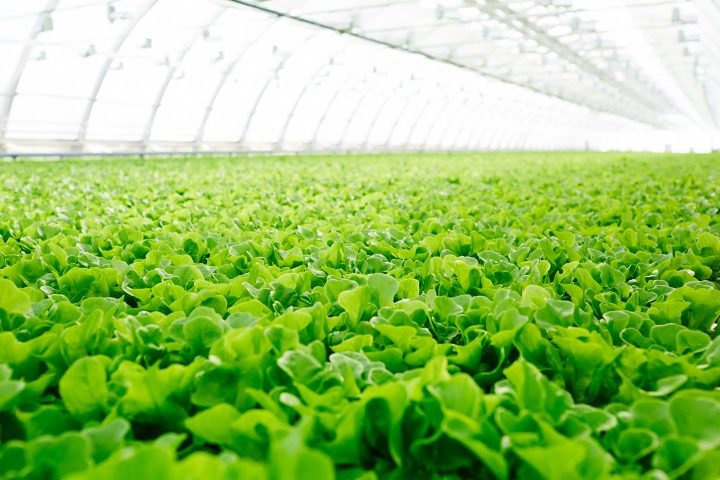
Vaccine Lettuce — that’s what Tennessee calls the food if it has antibody-producing material added to it.
Governor Bill Lee is expected to sign into law a bill aimed at classifying as “drugs” any food that contains vaccine material.
The legislation, HB 1894, passed the House early last month in a 73-22 vote, and last Thursday, the Senate approved it by an equally high margin of 23-6. The bill defines “vaccine material” as any substance intended “for use in humans to stimulate the production of antibodies and provide immunity against disease.”
Tennessee does not intend to ban the sale of vaccine-laced foods, but it does want to require that they are labeled properly and that people obtain a prescription from a doctor prior to consuming them.
During floor debate, here is what co-sponsor and Republican Senator Frank Niceley had to say about it:
Evidently with this new technology, they can raise this lettuce … they can raise this stuff so cheap, and I’ve been reading about [them] talking about putting it in lettuce and mass medicating everybody, like they do with fluoride in the water. I mean, who could control the dose? If you eat a lot of lettuce, you’re gonna get a lot of mRNA; if you don’t eat any, you won’t get any. And they’re actually talking about other vegetables that they’re trying to put this in. And my question is, would this have to be sold at a drugstore? Would you still buy it in a grocery store? Why don’t we just outlaw this stuff completely? We don’t have any idea what its gonna do to our children, I mean to us and old people, anything. I mean, this stuff’s right out of a science fiction movie.
But it isn’t science fiction, despite the fact that opponents of the bill argued that the situation defies imagination. More than a decade ago the journal Advances in Biotechnology published an article entitled “Edible Vaccines.” Researchers bragged about introducing vaccines into plants, which in turn would manufacture the encoded protein. Foods included potatoes, bananas, beans, corn, rice, and lettuce. The article said edible vaccines are “easy to administer, easy to store and [a] readily acceptable delivery system for different age [groups] … yet cost effective.”
Perhaps they got the idea from the 2002 ProdiGene scandal, when corn and soybean food crops in Nebraska and Iowa were accidentally contaminated from corn that had been genetically modified with a vaccine for pigs. ProdiGene got a slap on the wrist and had to pay fines, but the same company leadership now operates the Applied Biotechnology Institute, which conducts open-air field trials of pharma crops.
They are not alone in product development. Our federal government has funded a research project at the University of California with $500,000 of our tax money. Scientists are trying to implant pathogen-targeting mRNA — just like that used in Covid-19 vaccines — in the cells of edible plants. The plan is for that mRNA to replicate in the plants and be consumed by humans.
Why is the federal government funding this research when Congress made adding drugs to food illegal in 2007? The U.S. Food and Drug Administration (FDA) Amendments Act of that year prohibits adding drugs or biological products to food. But there is a caveat (of course), that the ban applies unless the FDA “has issued a regulation, after notice and comment, approving the use of such drug or biological product in the food.” Sound familiar?
Last November, the U.S. House voted to stop funding transgenic edible plant vaccine research, but Kentucky Republican Congressman Thomas Massie tweeted a month ago that the prohibition was “left out of the new omnibus.”
Meanwhile, the private sector is busy.
A team of researchers from Italy’s EvoBioTech company published results in last July’s issue of the journal Cells, recounting their success in formulating an efficient oral mRNA vaccine in edible plants.
There’s also the Canadian biotechnology company Medicago, Inc., which has made news with a promotional video:
At Medicago, we use a careful, step-by-step process to develop vaccines using our plants as mini-bioreactors. We start with the gene sequence, or code, of a virus. We then use our technology to synthesize the virus code into a real biological product. The code contains genetic instructions that our plants can read, and we insert it into bacteria called Agrobacterium tumefaciens. We submerge the plants in a bath with the bacteria that carries the information into the plant cells. And using a vacuum, we suck out the air between the plant cells and replace it with the liquid. The plants absorb it like a sponge. At the end of their bacterial bath, we return our plants to a carefully controlled greenhouse to let them get on with their natural growing business for at least four days. Now the plants will start producing the most important ingredient of our vaccines: virus-like-particles.
So it seems an abundance of sane caution prompted the Tennessee bill. During floor debate, proponents said they are unaware of any vaccine-imbued foods already on the market, but they advocated a pro-active, offensive strategy — opting to pass the bill so it is already on the books should such food become available.
It also seems timely, since last December the FDA published a final rule allowing “an exemption from the requirement to obtain informed consent when a clinical investigation poses no more than minimal risk.” That’s suspicious verbiage from an agency that just three years ago told us a certain untested mRNA vaccine posed little threat to life or health.

































 Reaction & Commentary
Reaction & Commentary



















